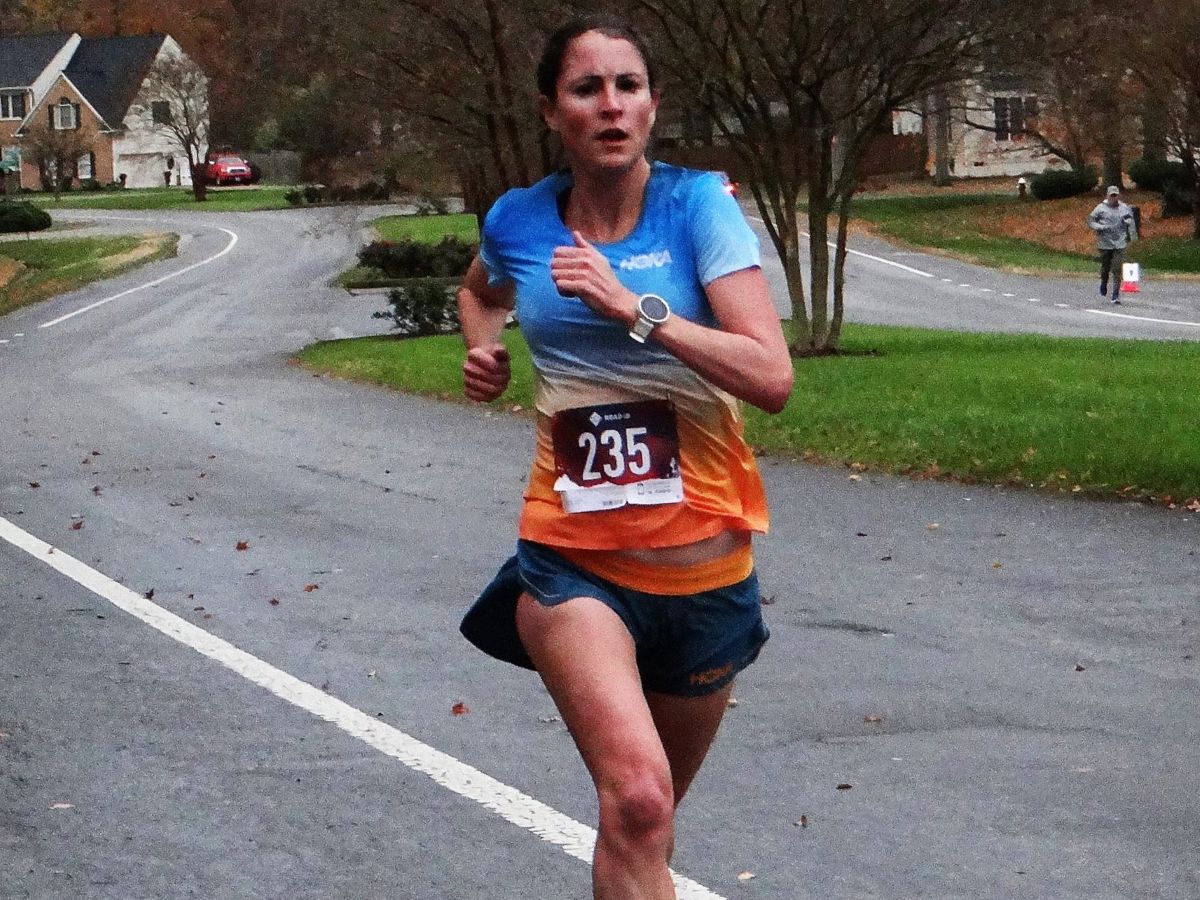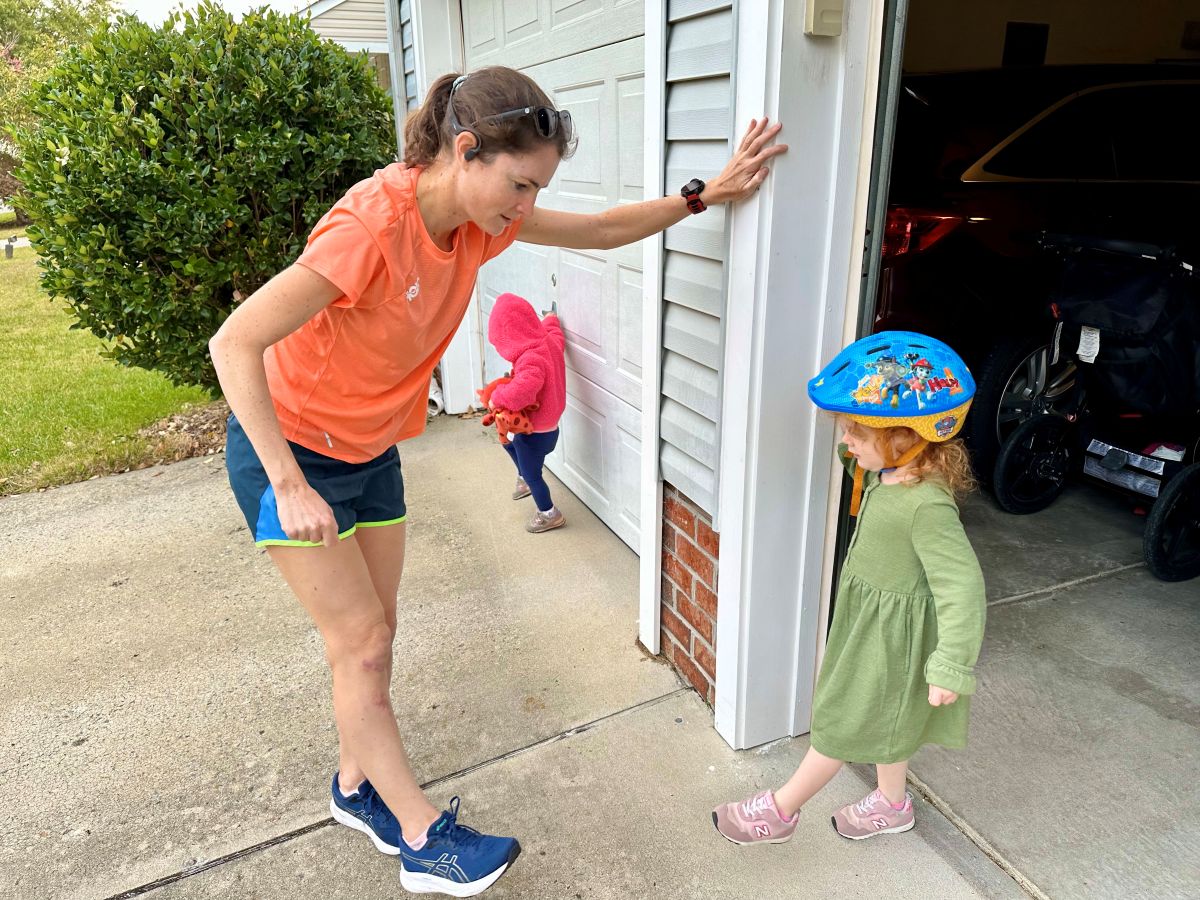I remember having a conversation with a professor in graduate school. He asked whether I intended to compete in running long-term. “Probably,” I told him. “But not at a high level.” I assumed that, as my scholarship grew to take up more space, my running would take on quieter forms. I saw them as inversely related, or like two sides of a seesaw. One would rise while the other fell.
In retrospect, what occurred was different. My scholarship grew to take up more space, as I anticipated that it would. But, at the same time, so did my running. What I did not foresee was that I would start to peak as a runner at the same time I matured in my academic career. With that came bigger running contracts and more opportunities to race. Life was like a seesaw with both sides trying to ascend at once (1). Things became complicated. Then I added children.
As a result, my running did assume quieter forms. But this was not a natural consequence of declining performance coinciding with a growing career. Rather, it was a decisive move away from elite-level competition at a time when I was still improving as an athlete. This was difficult because it left me wondering about my capabilities, or performance ceiling. But it was the right decision at the time. Overall, I am happy about it.
Making Running Smaller
I used to worry about what it would feel like when my days of professional racing were over, or when my running would need to get smaller. I worried for a few reasons: First, I love competing, and I did not want to lose that.
Second, a life intently focused on any craft (running included) is one constructed of habits. As a runner, I structured my day largely in terms of maximizing workouts and recoveries. I had a sense of purpose tethered to performance objectives that dictated, in large part, how I spent my days. To make running smaller would mean needing to dishabituate my habits and focus on something new, which I did not look forward to.
Third, it is easier to justify investing more of yourself into running, rather than less. Going “all in” accords with the way we often speak about sports. It sounds noble. Seen from the vantage of the sport, training less sounds blameworthy or undedicated. But seen from outside the sport — in recognition of other goods in a full life, such as family, career, intellectual goods, or other hobbies, training less can actually be a good thing.
To be clear, I am not confident my days of competitive racing are over for good (2). But, at the moment, I am running less. I also think this is a good thing. So, for those who are making a similar transition, here are things that I am enjoying now that running is sitting quietly in the back seat (3), rather than clutching the steering wheel of my life.
Being a Fan
I have always been a running fan. It’s easy to be one in a sport where there are so many inspiring, admirable people. But when you are also competing, there is part of you that feels implicated when you follow races. You wonder where you would have placed if you had lined up that day, too.
The further I am removed from racing, the quieter that voice is. I can enjoy the excitement and inspiration of other athletes without feeling implicated or inserting myself as the “middle term” in my viewing of races. I can fully appreciate a race and just be a fan, which is very fun.
Getting Faster
Running long takes a while. Training for short, fast races takes less time. For me, this feels more manageable in a busy life. So, that is what I am doing. I am appreciating the opportunity to sharpen up and do pace work. It is a fun change. Also, if I ever return to ultra races, watch out because I will be ready to sprint the final stretch of my 100 milers.

Sabrina Little racing five kilometers, a distance she has become more familiar with. Photo courtesy of Sabrina Little.
Freedom from Answerability
There are two kinds of freedom relevant to this conversation — “freedom to” and “freedom from.”
Having sponsorship support for many years afforded me the “freedom to” do a lot of things I could not have done otherwise. I was “free to” compete internationally and to invest in training in ways I could not have absent financial backing. A lot of doors opened because I had those partnerships.
Obviously, I lack these things now. But I do have “freedom from” answerability. I can run the races I really want to without prior approval. I can also not race, if that is what I want. I don’t have to defend my worth in metrics or race wins at the end of the year, nor meet the standards written into a contract. I am free from maintaining a media presence since I am no longer a marketing agent of a brand. At a time when I am busy with other things, these sources of concern are removed from my life. It feels freeing.
No More Brand Loyalty
This past decade has been a great time to be a runner because of advancements in sneaker technology. We have access to faster, more comfortable racing shoes than ever before. But if you run for a company that does not have the best shoes on the market, you essentially have to wear horse blinders to keep yourself from having wandering eyes to the person’s feet on the start line next to you. Otherwise, you may dwell on the possibility of a competitive disadvantage — the fact that their shoes may be faster than yours.
I realize this is relevant only for those who ran on professional contracts in the past, but having shoe freedom is something I am currently enjoying. I can select shoes based on which ones are currently the best in a shifting landscape of innovation. I am not limited by the offerings of my company. Currently, I have Nike, New Balance, and Hoka on rotation. I feel like a painter with many kinds of paintbrushes to ply my craft. That is very fun.

Freedom to choose from the full range of running shoes is an advantage to being unsponsored. Photo: Shutterstock
Final Thoughts
It is exciting when training and racing are on an upward trajectory — growing in importance and taking up more space in your life. But, for many of us, extensive involvement is seasonal, or at least not permanent. Many of us will need to make running smaller to make room for other investments in our lives. For those who are currently in that position like I am, I hope you find the brightness in this season of life, too.
Call for Comments
- Are you in, or have you previously been in, a season of your life where running has to take up less space?
- What other advantages and disadvantages have you found with this?
Notes/References
- I am not a civil engineer, but I think this is a recipe to break a seesaw.
- I am looking at you, road 100k. I have unfinished business with you.
- In the metaphorical back seat of my life, running sits in a car seat next to my children who are eating Goldfish crackers.

